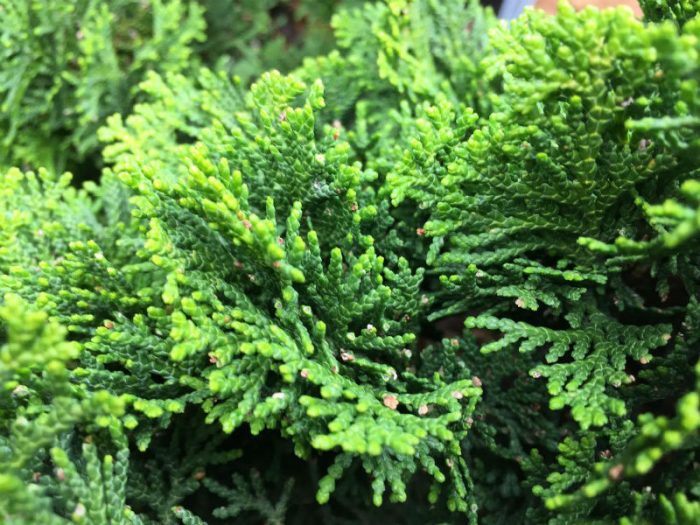Cypress essential oil comes from Cypress a coniferous needle-bearing tree. Cypress essential oil is good for restoring calm, cleansing the spirit, and promoting inner wisdom, harmony and strength.
Cypress essential oil is distilled from the needles and the twigs. It’s woody, smoky aroma and pungent and slightly spicy character blends well with citrus oils and other woody oils.

Use of Cypress Essential Oil for the Body
Cypress has many great properties. It’s antiseptic, astringent, antispasmodic, deodorant, tonic and an insect repellent. It relieves the overburdened, can be used to treat varicose veins, poor circulation and broken capillaries.
To treat varicose veins, blend cypress with a base oil like grape seed or sweet almond and massage it on the varicose areas gently. The oils should be applied with light massage strokes, always in an upward direction, never applying pressure directly on the varicose veins.
Cypress can also be added to blends to treat cellulite and fluid retention.
The astringent properties help with hemorrhoids. Piles often happen when circulation is poor, and cypress is a circulatory tonic. It should be blended with a base oil and can be then applied locally on the hemorrhoids.
Cypress is often used to treat menopause symptoms and to regulate the menstrual cycle. It can help reduce heavy flow and relieve painful menstruation.
Because it is antispasmodic, cypress has also been used to treat coughs, bronchitis and asthma. It is sometimes added to cough drops, and can be inhaled to relieve asthma attacks, coughing attacks and whooping cough.
In skin care it is recommended for oily skin. It’s often added to men’s skin care products, after shaves, and soaps for oily skin.
Use of Cypress Essential Oil for the Mind
Cypress tree and cypress oil are traditionally related to times of loss and transition: death, grief, changing of lifestyle or ending of relationships. These trees often grow in cemeteries.
Cypress essential oil can help relieve stress or other nervous conditions such as:
- Overburdened nervous system
- Suppressed, obstructed feelings
Cypress in Ancient History
Cypress has been used for thousands of years in medicine. Records from Ancient Egypt show it had medicinal uses in the Egyptian culture. The ancient Greek used it for hemorrhoids and other conditions that involved bleeding, such as internal bleeding and wounds. In Chinese medicine, it is a cleansing, purifying remedy.
Cypress in Modern History
Cypress trees grow in many gardens today, especially in southern Europe, but they are also often planted in cemeteries. The botanical name of the tree is Cupressus sempervirens, and sempervirens means ever-living. According to Patricia Davis in her Aromatherapy: An A-Z (p. 94), in ancient Egypt and Rome the cypress tree was dedicated to the gods of death and the underworld.
Patricia Davis writes this about cypress essential oil:
“It is very astringent, and is used whenever there is an excess of fluid, from oedema, incontinence and excessive perspiration to bleeding gums, bilious attacks and over-heavy menstruation. It is also very useful in skin care for oily and over hydrated skins. It is used quite often in men’s toiletries for its antiseptic and astringent properties – useful in an aftershave, for example – and its woody smell. It is a good deodorant, too.”
She adds:
“A humble but very welcome use of Cypress is for excessive sweating of the feet.”
Cypress Essential Oil is both a deodorant and an astringent because it reduces the amount of perspiration and unpleasant odors.
Cypress Essential Oil Cautions
Essential oil is sometimes distilled from other cypress species, but the best oil for therapeutic use in aromatherapy is Cupressus sempervirens. It’s non-toxic and non-irritating, but should be avoided during pregnancy.


